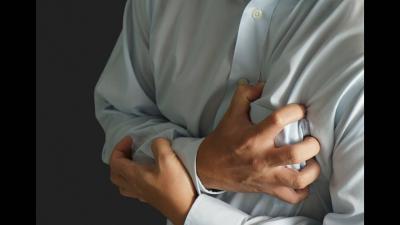Heart attacks and panic attacks share many similar symptoms, which is why healthcare experts emphasize the importance of distinguishing between them to prevent their risks and to manage each appropriately.
In a heart attack, blockage of the artery restricts blood flow to the heart muscle, and the symptoms persist until the person receives swift emergency medical intervention. In contrast, a panic attack may last for about 20 minutes and then disappear completely without medical intervention.
According to experts from the "Penn State Health" center in Pennsylvania, USA, both conditions can involve chest pain, increased heart rate, shortness of breath, and sweating; however, a heart attack can be fatal, unlike a panic attack. Experts confirmed that only a healthcare specialist can confirm whether a heart attack or a panic attack has occurred and differentiate between the two. Therefore, any common symptoms should be taken seriously, and one should not ignore the symptoms but seek immediate medical attention.
The individuals at greater risk include those suffering from high cholesterol and triglyceride levels, high blood pressure, obesity, diabetes, metabolic syndrome, or a family history of heart attacks. Men, as well as women aged 55 and older, are at a higher risk for heart attacks compared to younger men and women. Dr. Rajesh Dey, an interventional cardiologist at Penn State Health, stated, “If a young person without risk factors experiences chest pain, their likelihood of having a heart attack is extremely low. However, if a 50-year-old man who has smoked for a long time and has a 20-year history of diabetes experiences pain, it likely indicates a heart attack and that he needs urgent medical care.”
Heart attack patients often experience some symptoms in the days or weeks preceding the event, while panic attacks usually occur when a person is at rest and can be triggered by anxiety-inducing events, such as receiving shocking or bad news. Stress and anxiety are major contributors to panic attacks, but they can also be linked to heart attacks. According to healthcare experts, individuals experiencing a panic attack should sit in a calm, dark place and take deep breaths to help slow their heart rate.
Healthcare experts recommend that individuals having a panic attack should find a quiet and dark space and take deep breaths to assist in slowing their heart rate. Regarding prevention methods, Dr. Dey noted that one can reduce the risk of heart attacks by following a heart-healthy diet and exercising regularly. Panic attacks can be prevented through stress-reduction techniques such as meditation and yoga. Additionally, quitting smoking will lower the risk of both panic attacks and heart attacks.




